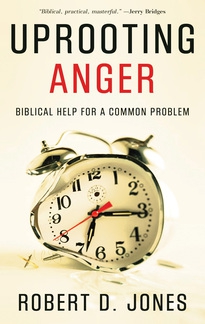I came home from vacation to find a box of books I had forgotten that I had ordered. There was a clearance sale. Some had arrived before I left for vacation and this was the balance of the order.
Since I’ve chosen to read The Works of John Newton this year, I decided to read some shorter books on a variety of subjects to broaden my reading for the year.
I decided to begin with The Ascension: Humanity in the Presence of God by Tim Chester and Jonny Woodrow. I don’t think I’ve ever read a book on the subject of the ascension. This is generally a neglected doctrine, at least among Protestants.
decided to begin with The Ascension: Humanity in the Presence of God by Tim Chester and Jonny Woodrow. I don’t think I’ve ever read a book on the subject of the ascension. This is generally a neglected doctrine, at least among Protestants.
Yet, I thought this an unusual book for Tim Chester. I’ve liked other books of his, but this seemed to be a less practical and more theological topic. Robert Letham? Sure, I can see him writing a volume on the ascension. Tim Chester? Not so much.
This is not just a different subject than usual for Chester but also writing style. Perhaps it is the presence of Woodrow. It is not written in the more popular style that Chester typically uses. It is not quite academic either. It draws a good balance.
The book is a mere 3 chapters and 92 pages long. Don’t confuse that with being shallow or superficial. It certainly isn’t exhaustive, but it handles what it does cover well. There are some good footnotes with resources to use for further reading. Some may be hard to find. My first attempt at finding an older volume by Derek Thomas was futile, but there are other places for me to look.
The first two chapters cover Jesus as Ascended Priest and Ascended King. They anticipated my (and other’s) critique regarding the final chapter which was not Ascended Prophet but Ascended Man. I believe they could and should have added a 4th chapter covering the missing office of Christ. It bears discussion. This is one way in which the present volume is not exhaustive.
“Let’s be honest: the ascension of Jesus is weird.”
It is a nearly unique event that makes it difficult for us to talk about with people. We struggle to understand it, so how can we explain it to non-Christians. But we must for there is no Christianity without it!
I say nearly unique because in one of the few points of disagreement, I think God prepared us with taking up of Enoch and then Elijah.
In the introduction they address a few of the objections people may have to the idea of an ascension. Things like “Wouldn’t evangelism be a whole lot easier if Jesus was still on earth?”
“The ascension seems a bad strategy. It removes the key piece of evidence that substantiates the claims of Christianity.”
And so we see the struggle we can often experience as we consider the ascension. It is not simply the reward for a righteous man like Enoch (though it is that too). This is the removal from earth of the most important person who ever lived, the object of our faith. And that perhaps is the point- He’s an object of our faith, not our sight. But it is more significant that simply that.
“The ascension is the enthronement of Jesus. He receives all authority and sends us out to declare that authority to the world. The ascension is the beginning of mission.”
I thought the first chapter, Ascended Priest, was the best chapter. It moved me to worship as I read of Christ ascended as my Great High Priest carrying my name (among others) into the presence of the Father. A good amount of theology is covered in a short space. This is good biblical theology as they moved through the Old Testament to show greater fulfillment and types revealed in Jesus’ ascension.
They frequently connect this doctrine with our union with Christ. We are present before the Father because we are united to the Son who is physically present before the Father.
“Our presence before God is as certain as Christ’s presence before God. Our salvation is safe and secure as long as Christ is in heaven.”
Jesus is there, as our Priest, not only interceding for us but leading our worship. We worship not only on earth but in heaven because of our union with Christ. The Father hears our voice!
The authors then move to the subject of Jesus as our Ascended King who is currently subduing His enemies while we wake and sleep. He is re-establishing God’s rule on a rebellious planet from His seat at the right hand of the Father. He has and is accomplishing what no mere son of David could do.
They look at the Ascension “from above” by tying it into Daniel 7 as the Son of Man appears before the Ancient of Days in the heavenly court. This is legal coronation as He is invested with authority to rule. Earthly kingdoms are being superceded by the kingdom as the gospel is announced and trusted.
“If he’s enthroned in Jerusalem then He is just Israel’s king. No, Jesus is enthroned in heaven as the king of the whole world.”
The new Adam is not merely the son of God but the Son of God who comes “as the world’s king to rescue the world.” He reigns thru His people as they continue with the mission He gave in the Great Commission. In this they want us to see a bigger gospel than the individualized one. We do believe as individuals, but we become part of a bigger Story, a bigger Body and an everlasting kingdom. We are citizens of heaven, and citizenship is not a private thing but a public one.
They spend some time on the necessity of a bodily ascension instead of a spiritualized one. He is both King by virtue of divinity but also a human king sitting on the heavenly throne. He rules not only over “spiritual” realms but the material realm as well. Rather than immediately establish the kingdom in its fulness, Jesus left “earth to allow those who belong to the old age time to repent.” They explain the already/not yet aspects of Jesus’ reign well. The new age has begun while the old age continues until Jesus does return. We live within a great tension.
We can see this tension in a number of ways. Personally: we are at the same time righteous and sinners. We partake of the new age thru justification and sanctification. But we are not yet glorified until we are in His immediate presence. Justified by faith alone we not only seek to become righteous but thru the proclamation of the gospel bring others into the new age. We work to change the societies in which we live, reflecting the rule of Christ. But this won’t be completed apart from His return. We should neither “give up” because it will all “burn anyway” nor expect to usher in some golden age before the return of Jesus. We work for righteousness though we know it won’t be accomplished (there will still be poor, still be famine, still be racism etc.).
The third chapter, Ascended Man, was probably the least focused. It contains some important material. But the lack of an office creates a broader stroke. In some ways they try to cover too much territory and engage in some philosophical speculation.
The begin with the scandal of the ascended man by taking a look at John 6. He see a Messiah who came down from heaven, who promises resurrection to those who partake of Him, and the disciples will “see the Son of Man ascend to where he was before!”. In the Ascension, the Son of Man is not going someplace He’s never been. He’s returning to His glory. But, He goes as Man blazing a trail for humanity. They express it as ‘making a place for humanity in heaven’. This idea of eternal bodily existence was scandalous to the Greeks who generally had a view of the body as a prison for the soul which is escaped in “salvation.” Our understanding of salvation is bodily.
“The ascension is the story of a body moving to heaven. It is not escape from the bodily realm, but the entry of humanity- in our physical-ness- into the heaven, the sphere of God.”
Here they get into discussing heaven and earth as “two separate planes that intersect” rather than heaven being “above” earth. He reminds us of Narnia, another world that intersected with ours so that at times people could move between them. In unpacking this they bring up theoretical physics and Einstein’s theory of relativity. Space, time and motion are about the relationships between things. This could be difficult for some to wrap their minds around.
 Next they address how the “absent Christ is present through the Spirit.” The ascension results in the outpouring of the Spirit as Jesus now engages in His heavenly ministry on earth. The humanity of Christ has not been transformed and omnipresent but is available thru the Spirit who dwells in His people making Christ present to them, preserving our union with Christ. This plays out in the Reformed understanding of Communion. Rather than confuse the natures of Christ, nor transfer attributes creating one new nature, we uphold the two natures of Christ but recognize how the Spirit mediates His presence with us and our presence with Him. Following Calvin they say: “It is not that Christ comes down to us in the Lord’s Supper. Rather, by the Spirit, we ascend to be with Christ in the Lord’s Supper.”
Next they address how the “absent Christ is present through the Spirit.” The ascension results in the outpouring of the Spirit as Jesus now engages in His heavenly ministry on earth. The humanity of Christ has not been transformed and omnipresent but is available thru the Spirit who dwells in His people making Christ present to them, preserving our union with Christ. This plays out in the Reformed understanding of Communion. Rather than confuse the natures of Christ, nor transfer attributes creating one new nature, we uphold the two natures of Christ but recognize how the Spirit mediates His presence with us and our presence with Him. Following Calvin they say: “It is not that Christ comes down to us in the Lord’s Supper. Rather, by the Spirit, we ascend to be with Christ in the Lord’s Supper.”
In ministry we are people in two places (earth and heaven) and two times (present age and age to come) through Christ. They differentiate between an ascensional ministry and an incarnational ministry. Like J. Todd Billings in his book Union with Christ, they critique incarnational ministry. There is a way to affirm this as loving people as Jesus did and serving them in their context. But we are not to think of ourselves as His presence on earth, as though He re-enters creation through us. They note: “Christ does not need a replacement body because He is still embodied.” We do not complete the Messianic task, He does.
Lots of distinctions are made in this section as they deal with some concepts common in evangelicalism. They want us to properly understand kingdom growth, not in spatial terms, but in the number of people who gladly enter His rule. Here they also discuss the “pilgrim principle” for our remaining time on earth prior to His return.
I found this to be a helpful book to introduce the meaning and implications of the bodily ascension. I am surprised that Tim Chester wrote a book on this subject (with Jonny Woodrow), but I’m mighty glad he did. Aside from some of the theoretical physics and their application in the Lord’s Supper via Calvin, this is an accessible book for normal people. They connect all this to our salvation, mission and Christian life such that this is not ivory tower navel gazing.
“Christ has taken our nature into heaven to represent us; and has left us on earth, with his nature, to represent him.” John Newton
 As a result, I decided to read
As a result, I decided to read  Schaeffer talked much culture and was often critical. His views were not the conservatism of, say, D. James Kennedy, but those of the revolutionary. While they may have overlapped at points, Schaeffer wanted Christians to buck the trends and lived in a counter-cultural fashion. This was to exhibit the reality of Christianity.
Schaeffer talked much culture and was often critical. His views were not the conservatism of, say, D. James Kennedy, but those of the revolutionary. While they may have overlapped at points, Schaeffer wanted Christians to buck the trends and lived in a counter-cultural fashion. This was to exhibit the reality of Christianity. I decided to read
I decided to read 
 This book left me frustrated because I got the impression that ALL my anger was sinful. While he occasionally mentioned the gospel, I was left feeling hopeless in my struggle until Jesus returns. This is part of why I think this wasn’t the book I needed to read, it was not the right medicine for me. Now, I could be completely wrong and just need to repent like he kept telling me. But help me to know, in more than a paragraph, when my anger is a good thing even though I have to be careful regarding how I express it. In this regard,
This book left me frustrated because I got the impression that ALL my anger was sinful. While he occasionally mentioned the gospel, I was left feeling hopeless in my struggle until Jesus returns. This is part of why I think this wasn’t the book I needed to read, it was not the right medicine for me. Now, I could be completely wrong and just need to repent like he kept telling me. But help me to know, in more than a paragraph, when my anger is a good thing even though I have to be careful regarding how I express it. In this regard,  When I was in seminary, Richard Pratt told us that the wise pastor gets the right medicine out the cabinet to help the church member. To give someone the wrong medicine could be toxic for them.
When I was in seminary, Richard Pratt told us that the wise pastor gets the right medicine out the cabinet to help the church member. To give someone the wrong medicine could be toxic for them. oo often we can be “one-trick ponies”. We are really good at admonishing (or tend to see people needing admonishment everywhere). Our ministry becomes toxic. We beat down the timid and weak. Those with a prophetic gift can be guilty of admonishing people they should encourage or help. “Repent” is not the answer for all that ails us, and we shouldn’t act like it is.
oo often we can be “one-trick ponies”. We are really good at admonishing (or tend to see people needing admonishment everywhere). Our ministry becomes toxic. We beat down the timid and weak. Those with a prophetic gift can be guilty of admonishing people they should encourage or help. “Repent” is not the answer for all that ails us, and we shouldn’t act like it is. found it in a “clearance bin” online. It was discounted, but I was intrigued.
found it in a “clearance bin” online. It was discounted, but I was intrigued. The chapters are similar to sermons. There is an opening illustration to frame the chapter. He returns to illustration to wrap up the chapter. It is a well put together book. It is a book that pastors are well advised to keep on their shelf. At some point they will need it “in case of emergency” because one day that emergency will come. The pastor who reads it can receive help and survive the inevitable emergencies. Maybe you’ll even find a copy in a clearance bin. Don’t confuse that with its worth.
The chapters are similar to sermons. There is an opening illustration to frame the chapter. He returns to illustration to wrap up the chapter. It is a well put together book. It is a book that pastors are well advised to keep on their shelf. At some point they will need it “in case of emergency” because one day that emergency will come. The pastor who reads it can receive help and survive the inevitable emergencies. Maybe you’ll even find a copy in a clearance bin. Don’t confuse that with its worth.